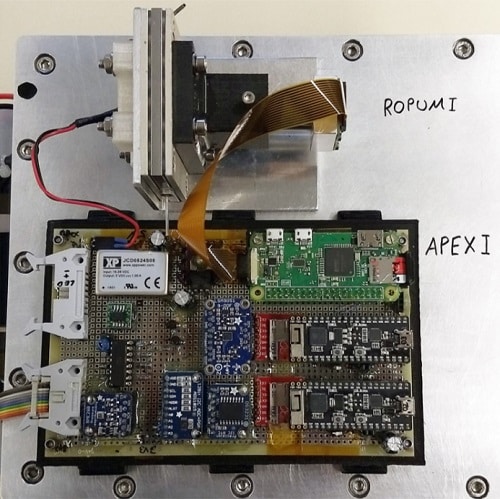The ESP32 modules have been used in a research project for developing new commercial “off-the-shelf” on-board computing (OBC) for space rocket communication

It seems that ESP32 can be used for developing just about anything and not just small-scale DIY electronics projects. This was proved last month by the German Aerospace Centre (DLR), which has successfully launched a research project into space that consists of – two ESP32 SiP (System in Package) modules.
More specifically, the project consisted of a Raspberry Pi Zero with an attached high-definition camera, two ESP32-PICO-D4 and a host of sensors connected via an I²C bus. Additionally, the entire system was connected to the service module of the launch vehicle in order to receive LO (lift-off), SoE (start of experiment) and SoDS (start of data-storage) signals and act upon them as required.
Small yet very powerful
With a super small size of 7 × 7 × 0.9 mm, robust performance and low-energy consumption, the ESP32-PICO-D4 is an ideal choice for space-constrained or battery-operated applications and was thus suitable for the project. It also includes Wi-Fi and Bluetooth connectivity, along with a 4-MB SPI flash.
Additionally, ESP32-PICO-D4 seamlessly integrates such peripheral components as a crystal oscillator, flash, filter capacitors and RF matching links in a single package. All this helps ESP32-PICO-D4 reduce supply chain complexity and improve control efficiency.
Nico Maas, Ground Controller at DLR Cologne and project assistant, said, “In order to supersede the aging Microchip ATMEGA328P as the de facto standard for Commercial off-the-shelf (COTS) On-Board Computers (OBCs) with a more powerful system for different kinds of high-speed sensors and image acquisition applications, we developed advanced processors, encryption, and security experiment (apex). The platform consisting of a newly developed OBC using COTS components has been flight-tested during the ATEK/MAPHEUS-8 sounding rocket campaign. The main advantages of the apex OBC lie in the speed and simplicity of the design while maintaining operational security with a redundant master-master microcontroller system, as well as dual flash storage within each master. Additionally, a single-board computer with a containerised and failure-resistant Operating System (OS) (balenaOS) was included to allow usage of a high-definition camera or other more compute-intensive tasks. The bench and flight tests were performed successfully and already showed feasible ways to further improve operational performance.”
As of now, the ESP32 modules are working fine in the space. Work is going on to make improvements with regards to the LR (Link Ready) system to achieve higher networking speeds.
Read the original project paper here







